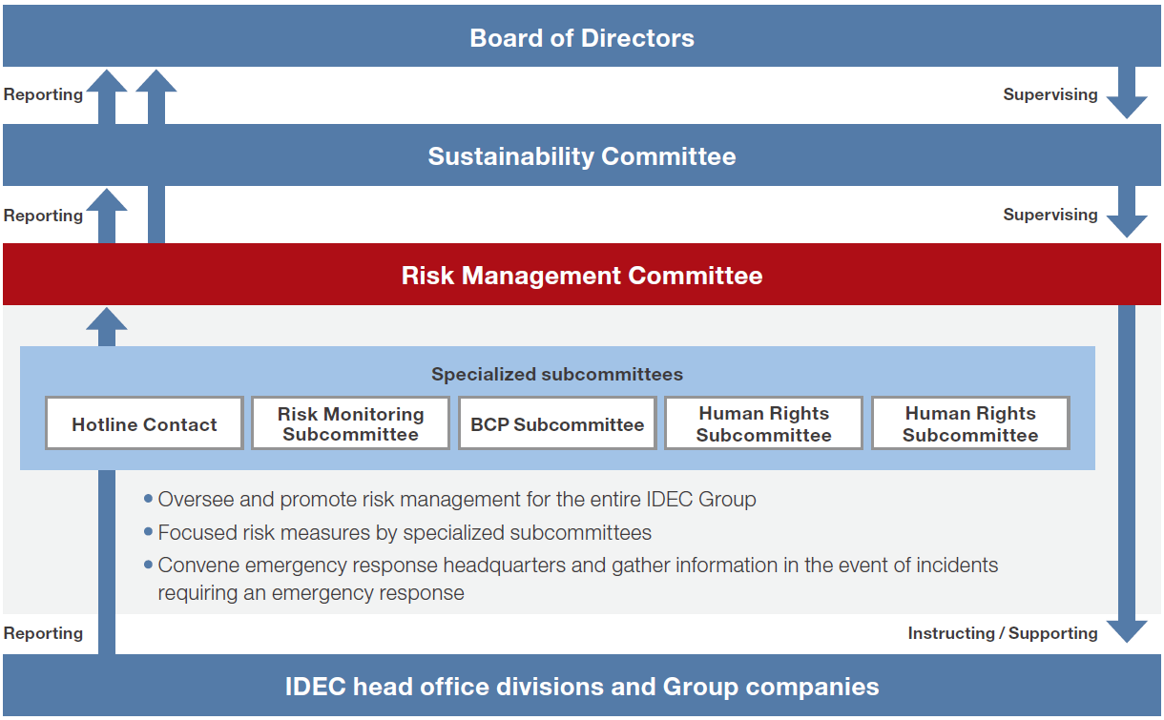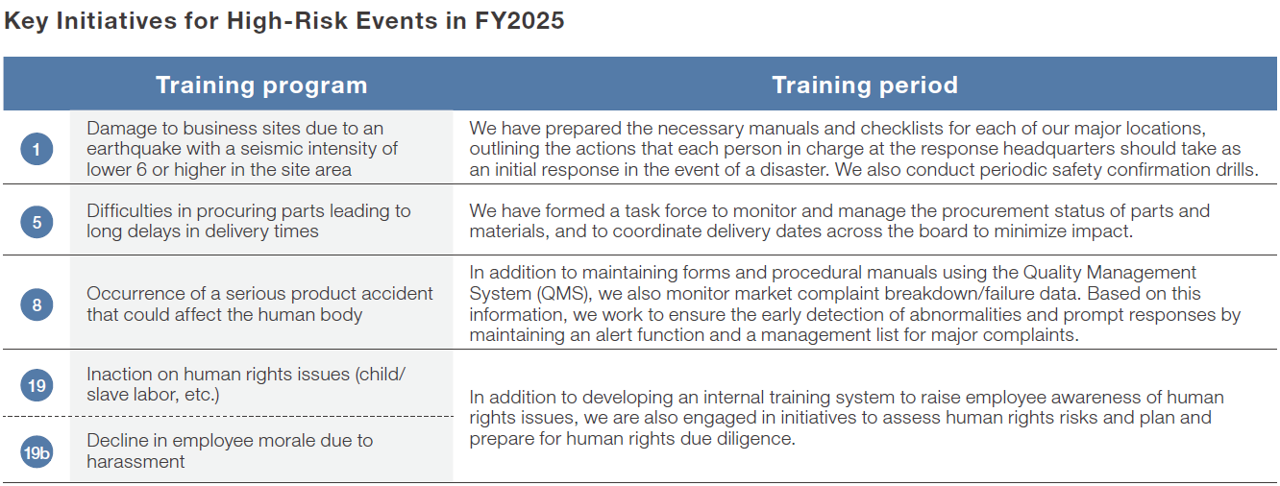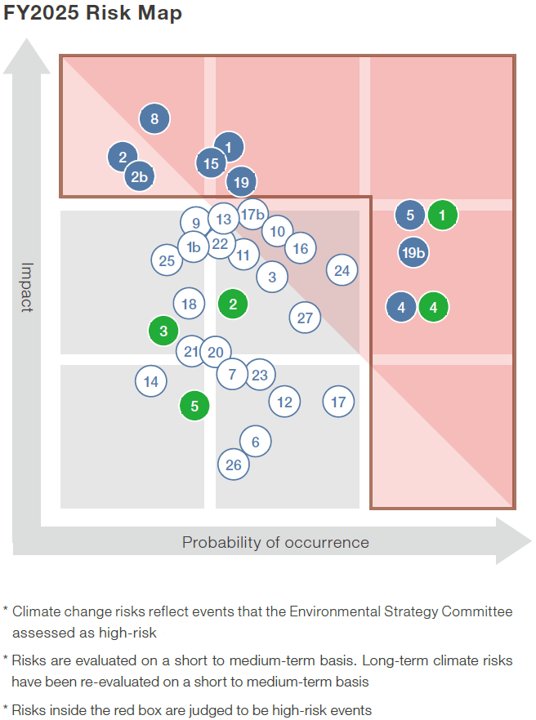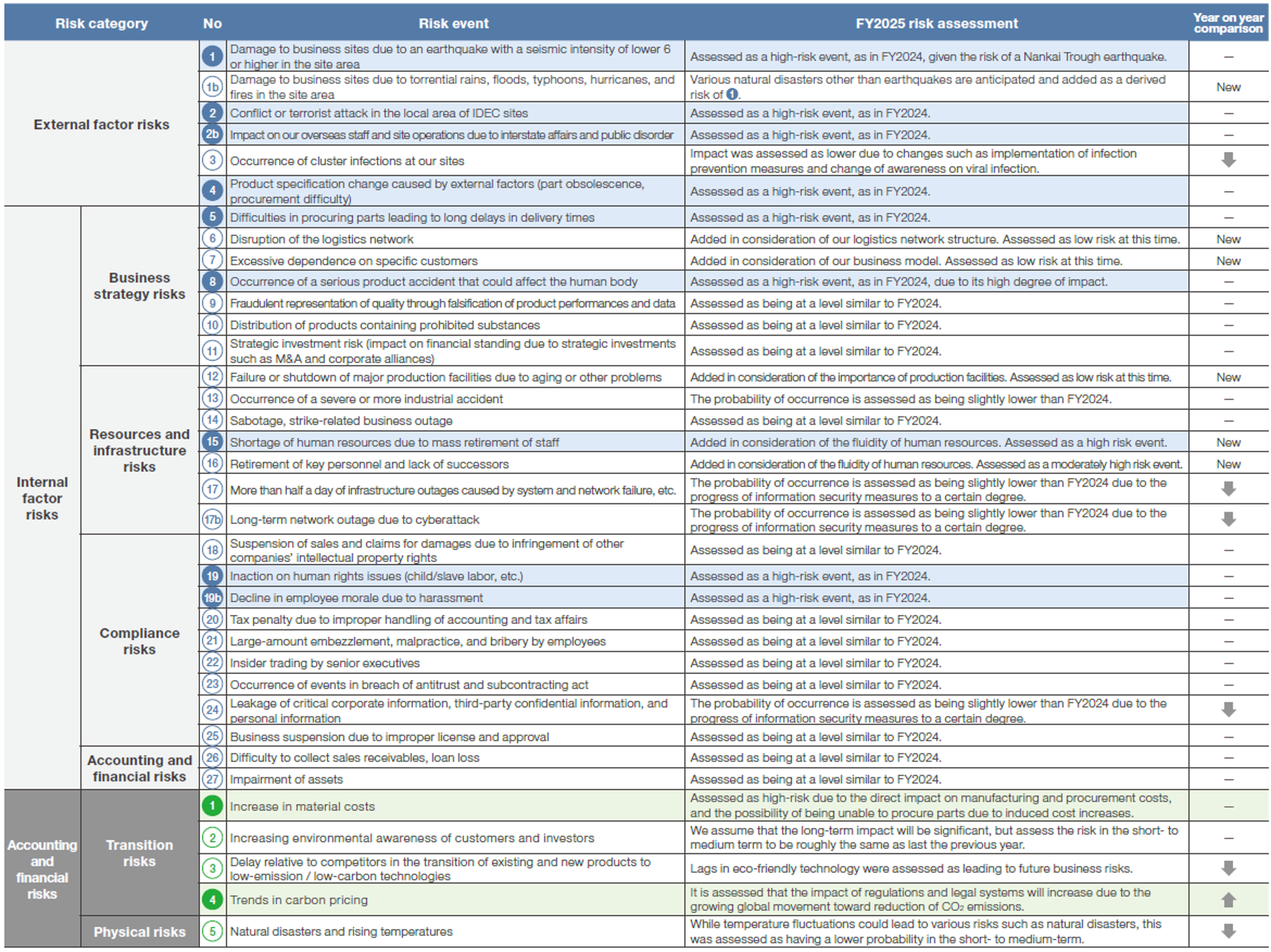Risk Management |
Risk Management System
IDEC has established the Risk Management Committee as a specialized committee under the Sustainability Committee, chaired by the CEO, with the objective of avoiding, mitigating, and transferring risks to the IDEC Group in advance, and minimizing damage in the event of an emergency response event.
The Risk Management Committee is responsible for overseeing the Group’s overall risk management during normal times and responding in the event of an emergency. In addition, the committee has established specialized subcommittees to address
risks that require particular focused efforts.
The Risk Management Committee’s initiatives are reported to the Sustainability Committee, which meets twice a year, and the committee then reports to the Board of Directors. In addition, the Risk Management Committee is able to report directly to the Board of Directors on important events such as internal (whistleblowing) reports, ensuring that risk information is reported appropriately to management.

Risk Map and Identification of High Risk Events
The Risk Monitoring Committee regularly identifies and evaluates risks based on the assumed risk events that may negatively impact the IDEC Group’s continued business expansion and corporate value enhancement. Concerning each risk event, an evaluation questionnaire is conducted using the “probability of occurrence,” “magnitude of damage” and “impact” as measures, and the results are plotted on the risk map relative to the assessment.
The risk events evaluated include climate change risks that the Environmental Strategy Committee has judged to be significant issues. Also, risk events that have a high probability of occurrence are considered high-risk events. Each department responsible for a particular high-risk event is assigned a risk reduction target, and gauges its progress toward the target on a semiannual basis.



Business Continuity Planning (BCP)
To prepare for natural disasters such as earthquakes, which are one of the IDEC Group’s high risk events, we have established a subcommittee within the Risk Management Committee to formulate business continuity plans (BCP). The subcommittee works in cooperation with relevant parties in the manufacturing division and target sites to formulate basic policies, initial response flowcharts, and business continuity plans for in the event of a disaster.
In addition, we map out the initial actions to be taken by each emergency task force member in a disaster, and create manuals and checklists for guiding those actions. We also routinely review our disaster countermeasures, and use the intranet to communicate information for raising the disaster prevention awareness of all employees.
Our basic policy on crisis response
・Place top priority on the safety of employees and their families
・Establish mechanisms and organizational structure that will enable us to maintain quality to meet customer needs with safe and ANSHIN products and services, and avoid delaying the supply of products, even in the event of an emergency
・Recognize the importance of daily readiness and training, and establish a strategy and organizational structure that takes crisis response into account